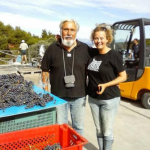Economy Minister Tomislav Panenić speaks about energy policies.
Croatia intends to complete the construction of a floating LNG terminal in the northern Adriatic by 2018, and the initial capacity would be about two billion cubic metres of gas annually, said Economy Minister Tomislav Panenić in an interview with Reuters, reports Index.hr on April 13, 2016.
“That does not mean giving up on the land terminal, but at this point we believe that we can ensure the stability of the market with a floating terminal”, said Panenić in the interview. The original plans included a land terminal with a capacity of six billion cubic metres of gas with the aim of supplying the countries of Central and Eastern Europe.
Foreign investors, including some from the United States, have shown interest in the terminal on the island of Krk, and it is expected that the talks on financial details will accelerate in coming months.
Panenić said that the energy sector was one of the most important for encouraging investments in Croatia, whose economy grew by 1.6 percent last year after six years of recession. “We hope that the better use of EU funds for development and reforms aimed at facilitating investments will lead to the economic growth this year of at least 2 percent”, said Panenić. He added that in the next 12 months Croatia aimed to complete the changes to various laws in order to simplify and speed up investment procedures and reduce costs.
Panenić said that Hrvatska Elektroprivreda (HEP) plans to invest about 3.6 billion kuna in modernizing facilities and increasing production capacity of hydropower plants. He said that the government could issue between 10 and 25 percent of shares of the company “if we find a right partner who would turn HEP into a large regional player”.
He also said that the government wanted to renew talks with the Hungarian MOL about INA. “I cannot guarantee that this will happen before the summer, but the government is working on its negotiating position. We want to focus primarily on investments and improving the business operations of INA”, said Panenić. Croatia, which owns about 45 percent of INA, and MOL, which has a share of almost 50 percent, have been unable to agree for years about the issues of investments and management rights in INA.










